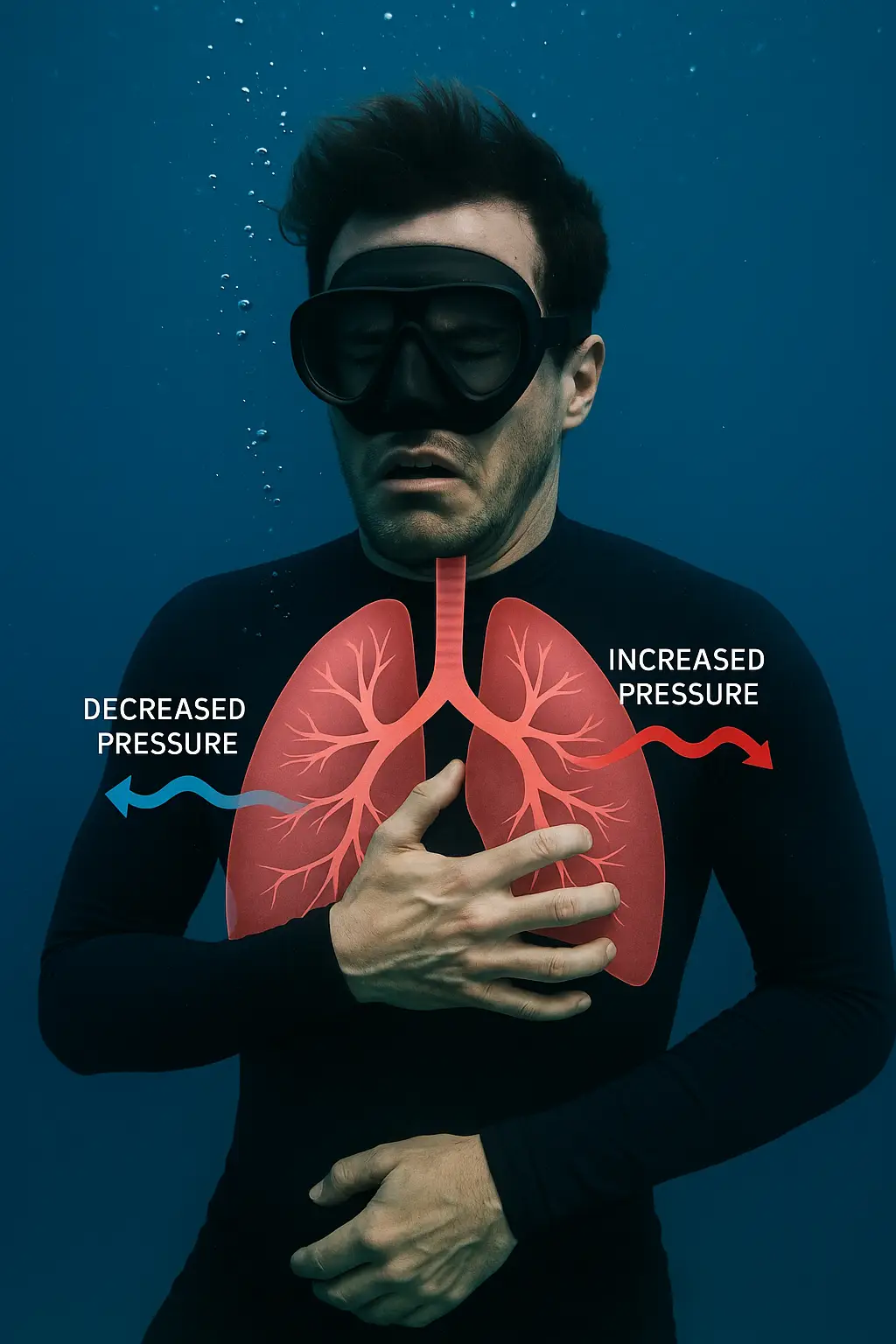Understanding Lung Barotrauma in Freediving
What is Lung Barotrauma?
Lung barotrauma, commonly known as "lung squeeze," refers to injuries caused by pressure differences affecting the lungs. It's considered one of the most serious risks in freediving and, if untreated, can lead to potentially fatal outcomes.

How Does Lung Barotrauma Occur?
In freediving, lung barotrauma primarily occurs when divers descend below their residual lung volume (RV) and continue deeper without adequate preparation or adaptation. Essentially, diving too deep, too soon, exposes the lungs to pressures they can't withstand. The human body requires significant time—months or even years—to safely adapt to increased depths.
However, depth adaptation alone doesn't eliminate the risk entirely. Even experienced freedivers can suffer lung injuries due to stress, inadequate relaxation, or exposure to cold temperatures. Stress and cold cause muscles around the lungs to tighten, reducing their ability to stretch and respond to increasing underwater pressure. In such scenarios, recognizing the risk early and aborting the dive promptly is crucial to prevent injury.
Contrastingly, in scuba diving, lung barotrauma usually occurs during ascent due to breath-holding. In freediving, although less common, the injury at depth can lead to fluids accumulating in the lungs. As the diver ascends, expanding air with limited space can cause similar complications to scuba diving-induced lung barotrauma.
Impact of Fluid Entering the Lungs
When lung tissue ruptures due to pressure differences, fluids enter the lung's airspaces, balancing negative pressures. This fluid intrusion impairs or prevents gas exchange, making breathing extremely difficult or even impossible.
Signs and Symptoms
Recognizing symptoms early is vital for immediate intervention. Common signs of lung barotrauma include:
- Persistent chest tightness
- Wheezing and airway obstruction
- Difficulty breathing or catching breath even after surfacing
- Persistent coughing, potentially accompanied by pink, frothy mucus
- Persistent fatigue
Taking Lung Barotrauma Seriously
Any incident of lung barotrauma is severe and must never be underestimated. Ignoring symptoms or resuming diving prematurely can exacerbate injuries, leading to long-term health issues or even fatalities. Immediate cessation of diving activity, followed by professional medical consultation, is essential. After a diagnosed lung squeeze, divers must abstain from freediving for at least one week, ensuring sufficient recovery time.
Safety First
Responsible freediving involves recognizing your limits, respecting the body's adaptation process, and seeking immediate medical attention when injuries occur. Remember, prevention and awareness are your best tools underwater.
